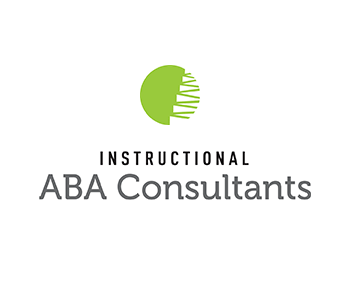
by IABA Team | Nov 29, 2022
If your child is in need of ABA services for autism, you should have no shortage of service providers to look at. Not all ABA service providers are created equal. Asking specific questions in your interview with any potential ABA provider is the best way to determine if they can help with your child’s needs.
Here’s a list of questions you should ask in any interview with a potential ABA service provider.
Interview Questions ask ABA Service Providers
How Many Hours of Therapy Does My Child Need?
This question will have a different answer for every child, as each child has unique needs. A BCBA should be recommending hours for your child–not the company or corporate policy. If you are considering a care provider who has ‘set times’ for programs, your child may not receive the correct amount of time for their needs.
Does Your Program have Behavior Requirements?
Some behaviors and issues will need to change over time, but forcing the issue through strict programs or adherence to certain behaviors is not the way to go. Be sure to routinely check your child’s program and progress if you think any requirements of the program are too strict.
ABA therapy works to help people with ASD adapt to neurotypical social norms. Having strict requirements to not allow normal ASD behaviors may lead to unnecessary behavioral challenges with many people.
Can I Observe the Program or My Child in the Program?
One of the most important aspects of ABA therapy is continuing a program at home. Information should always be available on how your child is progressing. If an ABA service provider refuses to share information or allow observation you may want to take a closer look at the program.
Daily records should be available to parents if they want to know what is going on in treatment. If an ABA service provider is unable to share information, it may be time to take a closer look. Quick note: information and records may take a few days to be logged, each clinic is different.
Do You Develop Plans Separately for Each Child?
In order to get the most out of ABA therapy, each child needs a custom-built program. ABA programs built on general needs will not help each child enough to address specific behaviors and needs
If you are presented with a brochure of programs or therapy ‘packages’ mentioned in a consultation, you need to really look at what is being offered. More often than not your child’s needs will not be met with a universal ABA therapy plan. Package deals for ABA therapy are not actually ABA therapy. Proper ABA therapy programs need to be individually created for each person.
ABA Therapy from IABA Consultants
If you have questions regarding autism treatment, education, or plans to use ABA therapy, we are here for you! Our goal is to make sure no family is turned away due to financial constraints. Our therapy team would love to talk to you. Find the location closest to you and give us a call. We’re here for you.

by IABA Team | May 19, 2022
IABA Consultants was recently featured in the spring 2022 issue of Milestones magazine. Click the image below to check out the article!


by Jessie Cooper | Mar 31, 2022
Over the course of that last month, I’ve written to you about finding joy amidst hardship, living through pain, leaving domestic violence, and navigating fear. This is not a light load for anyone to take, let alone write about. Outside of my own personal experiences, I know that the people I love (and the world) are carrying hardship too.
LIfe has always had joy, pain, happiness, sorrow, and other dualities. Add a 2+ year pandemic to any of those feelings and we have an additional ongoing hardship to navigate in addition to life being, well, life. How are we surviving and how can we thrive during this time? I don’t know the answer to that but I do know that taking care of our own hearts, bodies, and spirits is truly the only option to get through it.
Taking Care of Yourself
I’ve been a healthcare professional for longer than I’d like to admit (15 years and counting). Over the course of my time with an active caseload, I cannot tell you how many times I repeated the age-old line “you have to put your oxygen mask on first!” when talking to exhausted caregivers of children with behavioral disorders. Fast forward a decade to when I became a mommy and joined the bandwagon of “self-care isn’t selfish, really!” as I carved out time for myself to have enough capacity to raise my little men. Talking the talk is easy to do and going through the motions of self-care has also been extremely publicized over the years.
Need more you time? Pour a glass of wine. Exhausted? Slip into a hot bath. Don’t miss the gym! Press that green juice. Where is your yoga mat? Society and marketing firms have a list of activities that we all can do in order to recharge our batteries and put ourselves first. While we might actually enjoy some of these activities, these slogans and lists completely miss the mark.
You see, all the slogans are telling us that we could actually be more perfect at taking care of ourselves in addition to a mounting list of things to do in order to live the ‘ideal’ life. Perfectionism is not in short supply these days. Neither are product lines nor marketing companies that profit from our deep dives into perfectionism and trying to be ‘good enough.’
In short, the way society (and I) used to talk about self-care is a one size fits all methodology, but one that can actually leave us more exhausted than relaxed. But self-care is really important, and recharging is essential during well, life, and times of high stress. So how do we fill these needs for ourselves? How do we take care of our beautiful but exhausted hearts, spirits, and bodies? My first piece of advice has literally gotten me through my entire life (the good, the bad, and the ugly). Ready for it? My mother would be shocked. Don’t listen to anyone. Like anyone.
Listening to Your Real Needs
I mean I can apply “don’t listen to anyone” to most facets of my life (it’s not always right!) but in regards to self-care I know I’m on to something. How could anyone from the outside world tell you how to take care of yourself when our needs as humans come from inside of our bodies and spirits? The only voice that can actually tell us what we need to recharge is our own. When we need it, how we need it, what feels good, what doesn’t, and so on. Self-care looks like being a guardian of your own energy and putting what your heart, spirit, and body need before the needs of others. Yes, even your children and especially every other person you love.
In a world where we are buzzing and being “so busy,” simply saying, “firm no,” to anything and anyone is the first step to listening to what you really need. It’s impossible to be honest with yourself if you do not make time for yourself. Self-care isn’t a status, it’s a way of being, one that I needed to be more honest with myself about recently. Burning at both ends has been my status quo for well over a year (OK, more than 5 years). Then I remember the wise voice inside of me that wished for my health and happiness above all else. Then I remembered to sit down and listen to what I really needed.
For me, I needed more time with my friends and family and more quiet time to reset on my own. It was a balance. I also needed better food, less sleep (I was over napping… a lot), and finding time to be quiet in my own body (so I did sign up for some yoga classes). I’m not fully re-energized yet but each morning I remind myself I am my own guardian and that I’m worth it. Trauma comes, hardship comes, and our hearts, spirits, and bodies need us to care deeply and kindly for them as we navigate our own personal pain (or just a bad day). We all need a little more kindness starting with ourselves.
It is only in taking care of ourselves that we can care for others. I won’t go all oxygen mask on you but I will challenge you by asking you this, “what hurts, what is tired, and what do you need?” Turn off the noise of the outside world, tune into yourself, and find out. It’s a journey worth taking, I promise.
Xoxo,
Jessie

by IABA Team | Jan 18, 2022
There are many professions that are specifically designated to help individuals with autism. These professions range from publicly available to private in-home programs. The needs of each child are different and so are the professionals that can best help with their development.
Let’s take a look at some of the most common professions in the field of ASD and talk about who can benefit from their services. This is not a comprehensive list and is not meant to be taken as medical advice. Please listen to the recommendations of your developmental pediatrician or doctor!
Autism Professionals
The following 8 professions are commonly used to help with the development of individuals with autism. Note that many of these services can be used together–it all depends on the optimal service plan for each individual.
A note that ABA therapy is still the only evidence-based practice for helping the development of individuals with autism. Other programs and therapies can work in tandem with ABA therapy, but may not show the same results without its inclusion.
Applied Behavior Analysis
Applied behavior analysts (ABA) help individuals with autism learn by using ABA therapy, the only evidence-based method for helping symptoms of autism. ABA therapists are often found in clinical settings but they are able to provide in-home services as well. ABA therapists design unique plans for each individual that work with strengths and weaknesses to ensure progression and development.
Special Education Teacher
Special education teachers are typically found in schools, both private and public. These teachers can be trained in many different areas of special education, including autism. If you are sending a child with ASD to a public school, make sure their special education program includes an instructor who specializes in autism.
Certified applied behavior analysts are known as Board-Certified Behavior Analysts (BCBA). Clinics may use a combination of BCBAs and other ASD service providers in order to provide the best care to clients.
Rehabilitation Therapists
Related to general ABA therapy, rehabilitation therapists specialize in using ABA therapy in a clinical setting to help with development. Rehabilitation therapists are not BCBAs, but are educated and certified to help with ABA therapy in a clinical setting. Rehabilitation therapists without any direct professional links to a licensed ABA therapy practice are not recommended.
Occupational Therapist
Occupational therapists (OT) specialize in helping clients with everyday activities and duties. Like special education teachers, OTs specialize in many areas, from rehabilitation to autism. OTs may be recommended for helping with a development plan or routine for an individual with autism.
Speech Therapists
Speech therapists are essential for helping individuals with ASD and verbal communication issues developing speech and language skills. Like most fields on this list, finding a therapist that specializes in helping individuals with autism is crucial, as there are many types of speech therapists.
Social Workers
Social workers that help families with ASD-related issues typically introduce families to care options, plans, and networks. Individuals with more severe ASD-related issues may need specialized services for their entire life–services that many change over time. Having a social worker to help navigate the care landscape can help families select the best services for their needs.
Finding a social worker who is able to help with all of your child’s needs may take time, as social workers specialize in different areas. If you are thinking about utilizing a social worker, make sure to address all your needs and concerns before starting any program.
Developmental Psychologists, Clinical Psychologists, & Pediatricians
A developmental psychologist focuses on human development over the course of a person’s life. Developmental psychologists can help navigate issues and concerns with a specific individual’s development and recommend plans of action. Developmental psychologists are also able to determine if an undiagnosed case of ASD may be the case of developmental delays.
Clinical Psychologists can serve a similar role as developmental psychologists, but for different ASD-related issues. Clinical psychologists may be able to diagnose cases of ASD and will have information on how to proceed for the best development of an individual with autism.
Pediatricians are the first line of defense for identifying ASD and what to do next. While most pediatricians won’t diagnose ASD, they are aware of what warning signs to look for and what to do if they are encountered.
ABA Therapy from IABA Consultants
This article was intended as an overview of professional services and practices you may encounter with finding a program for an individual with ASD. ABA therapy is the only evidence-based method for improving the development and growth of an individual with autism.
If you have questions regarding autism treatment, education, or plans using ABA therapy, we are here for you! Our goal is to make sure no family is turned away due to financial constraints. Our therapy team would love to talk to you. Find the location closest to you and give us a call. We’re here for you.

by IABA Team | Nov 30, 2021
Many ABA therapy programs take place in-home. The comfortable setting makes in-home treatment more conducive to the needs of some children with ASD. In-home ABA therapy may differ from the therapy held in a clinical setting but what do those differences look like?
Family Involvement
Some children with ASD may require in-home ABA therapy to address issues with family members. This also allows family members to interact and learn how to use some of the ABA methods when treatment is over.
Other at-home issues may also require specific in-home therapy. Learning to properly use or interact with integral appliances, routines, and schedules may require the expertise of an in-home ABA therapist.
ABA Therapy Space
In-home ABA therapy usually requires designated spaces to be used. Each program is different and may use different spaces. All or most of the therapy programs will be conducted in these spaces, so be ready to slightly alter your daily routine if a specific room is off-limits for any amount of time (unless required to be there).
Being comfortable with a space may be beneficial to an ABA treatment program, so be sure to talk to your child’s therapist about therapy spaces.
In-Home ABA Therapy Scheduling
In-home ABA therapy is usually recommended to be conducted with a schedule that will be used during weekends & holidays. Creating a matching schedule for therapy and non-therapy hours can make transitions easier.
Talking to your child’s therapist can help you make a great schedule your child can follow. Be sure to include times, as moving times around can cause issues. Activities, free time, playtime, errand time, sleep schedules, meal times, and any other important family needs should be factored into both the therapy and regular home schedules.
Parents at Home
ABA therapists are not babysitters and should not be used in that capacity. Having a parent or guardian home is imperative during in-home ABA therapy sessions. If you are unable to be there for a specific time or something unmissable comes up, be sure to have a guardian take your place and not an unrelated babysitter.
Talking to your therapist about needs and duties as a parent can help you understand why you need to be home during therapy and what your role may require. Be sure to take any important notes and schedule any new activities.
ABA Therapy from IABA Consultants
If you have questions regarding autism treatment, education, or plans using ABA therapy, we are here for you! Our goal is to make sure no family is turned away due to financial constraints. Our therapy team would love to talk to you. Find the location closest to you and give us a call. We’re here for you.







